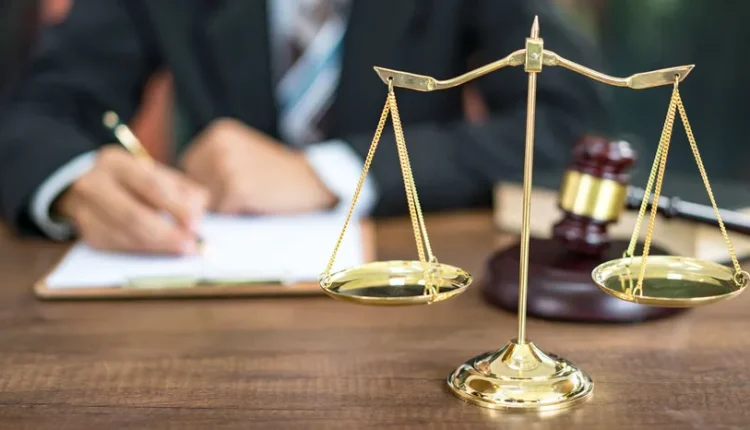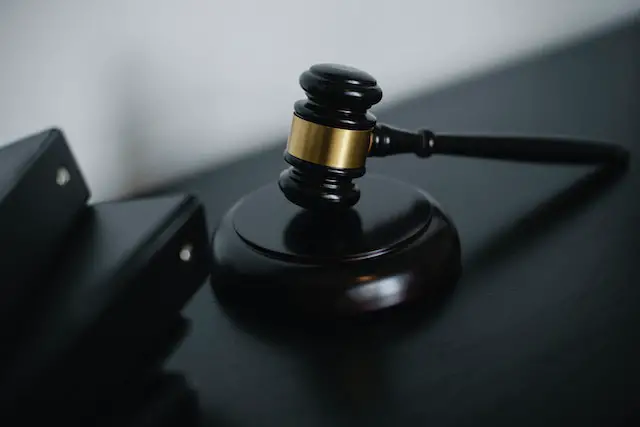
Can a Nolle Prosequi Case Be Reopened?
The contents of this web page are for informational and educational purposes only, and nothing you read is intended to be legal advice. Please review our disclaimer before taking action based upon anything you read or see.
The short answer is – yes, a nolle prosequi case be reopened. However, it is more complicated than a simple yes.
There are many phases in a criminal case, and the prosecutor and defense attorney can use a plethora of ways to resolve a case. One way to settle a case is by using nolle prosequi, which means “will no longer prosecute” in Latin. A nolle prosequi terminates the prosecution pending the indictment. The prosecutor must obtain court approval to enter nolle prosequi, but the accused must also consent.
The purpose of nolle prosequi is to prevent prosecutors from stopping a trial proceeding unfavorably, restarting it, and having another shot at the accused. A prosecutor might nolle prosequi a case for some reason. It could be because of a reevaluation of the evidence, the failure of witnesses to cooperate, or the desire to give the defendant a second chance.
Furthermore, the nolle prosequi is more widely used in the criminal justice system in the United States. There are cases, however, where it is used in civil lawsuits. Therefore, it is recommended to refer to federal and State statutes. These statutes outline the requirements for a nolle prosequi motion, including the acceptable reasons and the procedural rules to file the motion in the presiding jurisdiction. Come along as we elaborate more on this below.
What is a Nolle Prosequi, and How Does it Function?

Nolle Prosequi is a legal term in Latin that means “do not prosecute.” It is often referred to as a nol pros. If you have been charged with a crime or traffic offense and the State’s Attorney decides they will not proceed with your case, they enter a Nolle Prosequi. This means your case is dismissed, and the State has chosen not to proceed with the charges.
Though you are likely thanking your lucky stars that you were acquitted, you may still have questions lingering.
In a civil lawsuit, the plaintiff may enter a nolle prosequi at any time after the defendant is charged. Similar to criminal proceedings, upon commencement of a civil trial, the plaintiff may enter this legal notice before a verdict is returned. The plaintiff may voluntarily dismiss the charges by dropping the case or reaching an out-of-court settlement with the defendant.
When a nolle prosequi motion is filed, the legal process ends, and the charges against the defendant are dropped. The case is indefinitely postponed or permanently abandoned. Common reasons for a motion include the following:
- Failure of a key witness to cooperate
- Reevaluation of evidence that proves the defendant’s innocence
- New evidence that proves the defendant’s innocence or brings doubt as to the defendant’s guilt
- Desire to give the defendant a second chance
- Negotiated or plea agreement where the prosecutor dismisses certain charges in exchange for a guilty plea to the primary charge
Can a Nolle Prosequi Case be Reopened?
When a nolle prosequi is entered, you may feel as if you have just won, and there will be no consequences. You may have won the battle but did not win the war. When a nolle prosequi is entered, that does not mean your record is clean again. Thus, a Nolle Prosequi Case can be Reopened.
This usually depends on some circumstances, such as the running of the statute of limitations, duplicate charges, lack of availability of witnesses to testify, and accepting a plea of guilty to a lesser offense.
Often a nolle prosequi occurs after an indictment has occurred but before the end of a trial. Double jeopardy does not occur if the charges are re-filed against a person later.
Thus, when a nol pro is entered, charges can be re-filed. This means the person needs to be clearer once the prosecutor has decided.
Pros of Reopening a Nolle Prosequi Case
It closes a case
A Nolle Prosequi is a Good Thing because the case is now closed, and the State is not prosecuting the charges against the defendant. This is not a conviction, and the case is closed.
You can file for an expungement.
After a Nolle Prosequi, the defendant can immediately file for an expungement. This will help to get the court and police records permanently erased and removed from public view.
It can be used to reward a good act.
After a Nolle Prosequi, the State can agree to drop the charges in exchange for a good act the defendant did. This may include paid restitution, community service, etc.
Cons of Reopening a Nolle Prosequi Case
Longer duration
A Nolle Prosequi takes over 13 months to convert to a dismissal. This waiting period can be full of uncertainties.
It can affect your employment.
During the 13 months of waiting, any prospective employer looking to hire you will continue to find your arrest information available at local police departments. This can pose serious problems for anyone searching for jobs or looking to change employers.
It can lead to slandering of your reputation. With the advent of newspapers publishing so many arrests online, the slandering of your reputation on google has become a major issue for many clients who have been arrested.
Legal Precedents for Reopening a Nolle Prosequi Case
The Legal Precedent for Reopening a Nolle Prosequi Case is quite straightforward. A nolle prosequi is a dismissal without prejudice. This means that the charge can be brought back at a later date. While it is highly unusual for a charge that is nolle processed ever to be brought back, it ordinarily happens when a prosecutor agrees to dismiss a charge.
Still, the defendant violated another similar law a short time after that. Time limitations limit the length after a nolle prosequi in which a charge can be re-filed. And they vary based on the severity of the offense.
Nolle prosequi’s often occur in cases where the prosecutor does not currently have sufficient evidence to proceed. This is also valid when the victim wishes not to proceed.
How to Reopen a Nolle Prosequi Case

Different types of cases have a greater likelihood of being “revived” after a nolle prosequi is entered. Domestic violence GA cases are the prime example. In State Court, over half of these cases receive a nolle pros because the victim does not show up. From the ” incident ” date” for two years, that case may be revived if it is a misdemeanor and 4 years if accused as a felony.
To Reopen a Nolle Prosequi Case, contact the State or federal attorney for law enforcement. He will then investigate, organize, and review all evidence collected from witnesses. If it’s justifiable, the case will be reopened.
Nolle Prosequi vs. Dismissal
Two critical legal terms to differentiate are charges being dismissed or a Nolle Prosequi. When the prosecutor enters into nolle prosequi, they are not prosecuting the case any further. However, this does not prohibit the prosecutor from re-filing a new case against the accused later.
On the other hand, when your case is dismissed, all Court and police records of your arrest and case are destroyed. And under the erasure statute, you are deemed to have never been arrested.
As a matter of law, you are entitled to State that you have never been arrested on any job application.
Conclusion
In conclusion, the State can still elect to prosecute a defendant, or reopen a case, even after the case was entered as nolle prosequi. This is valid, provided that the statute of limitations for that crime has not expired. However, this is a rare occurrence in the vast majority of cases. The State’s decision to enter a nolle prosequi is final, and they may not bring the case back.
Expert Advice
If the prosecutor’s request for a nolle prosequi is granted, you may have a right to have the criminal charges against you expunged from your criminal and police records. However, an expungement would not occur automatically.
You must petition the court and ask the judge to grant your request. Also, you can increase the likelihood that an expungement would be granted if you work with an experienced expungement lawyer.

I’m a driven and accomplished law graduate and post-graduate, passionate about sharing my legal expertise via my blog. I hold a Bachelor’s degree in Law from the University of London (UK) and a Master’s in Law from the University of Derby (UK). Both gave me the foundational knowledge and skills to excel in my chosen career path.
Throughout my academic journey, I have gained extensive knowledge in various fields of Law, including Corporate and Business Law in the USA, Criminal Law, International Law, US Copyright law, and most importantly, American Constitutional law.


Comments are closed.